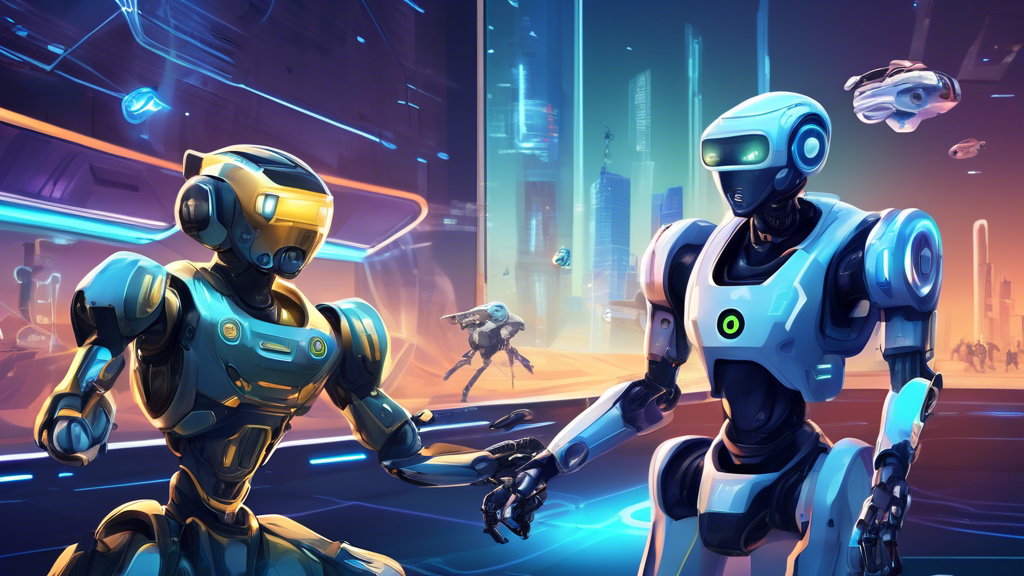ChatGPT vs. Microsoft Copilot vs. Google Gemini: A Comprehensive Comparison
Introduction
In the rapidly evolving landscape of artificial intelligence (AI), conversational AI platforms are emerging as powerful tools for enhancing various aspects of daily and professional life. Among the most talked-about platforms in this domain are OpenAI’s ChatGPT, Microsoft’s Copilot, and Google’s Gemini project. Each of these platforms has unique features and capabilities that make them stand out. In this comprehensive comparison, we will delve into the distinct characteristics, strengths, and potential drawbacks of ChatGPT compared to Microsoft Copilot and Google Gemini, providing insights into their impacts on productivity, creativity, and information management.
Overview of the Platforms
ChatGPT
ChatGPT, developed by OpenAI, has gained widespread attention for its ability to generate human-like text based on the prompts it receives. It’s built on the GPT (Generative Pre-trained Transformer) architecture, which allows it to understand context, generate coherent and contextually relevant text, and even exhibit a level of creativity in its responses. Its applications range from crafting emails to generating creative content, making it a versatile tool for both personal and professional use.
Microsoft Copilot
Microsoft Copilot is designed to be an integrated AI tool that works alongside users in Microsoft’s suite of productivity software, including Word, Excel, PowerPoint, and Outlook. It leverages the power of AI to enhance productivity by providing suggestions, generating content, and streamlining tasks. Copilot is built to understand the context within Microsoft’s ecosystem, making it a powerful assistant for anyone heavily invested in Microsoft’s suite of applications.
Google Gemini
Google’s entry into the conversational AI space, codenamed Gemini, aims to integrate AI technologies into Google’s extensive range of services and products. While specific details about Gemini’s capabilities and features are still emerging, it is expected to leverage Google’s vast data resources and AI expertise to provide a highly personalized and efficient AI-driven experience across its ecosystem, which includes Search, Gmail, Docs, and more.
Key Features and Differentiators
The key to choosing between ChatGPT, Microsoft Copilot, and Google Gemini lies in understanding their unique features and how they apply to individual or organizational needs.
ChatGPT
ChatGPT’s strength lies in its versatility and the quality of its text generation. It is capable of understanding and generating text in multiple languages, making it suitable for a global user base. Its ability to produce creative and contextually relevant content is unparalleled, providing users with a tool that can adapt to a wide range of tasks.
Microsoft Copilot
Microsoft Copilot stands out for its deep integration with Microsoft’s productivity suite. It offers real-time suggestions, content creation, and data analysis directly within the apps many professionals use daily. This seamless integration enhances user productivity by minimizing the need to switch between different tools and platforms while working.
Google Gemini
While full details of Google Gemini’s capabilities are yet to be disclosed, its potential lies in Google’s ability to leverage its extensive data and engineering prowess. It is expected to offer highly personalized and context-aware assistance, drawing on data from the user’s interaction with Google’s ecosystem to provide tailored responses and assistance.
Potential Drawbacks
Despite the promising features of these platforms, there are potential drawbacks to consider. Issues related to privacy and data handling are of concern, especially given the extensive data access these platforms may require to provide personalized services. Moreover, the quality of generated content, while impressive, can sometimes miss the mark or generate unintended biases, necessitating human oversight.
Conclusion
In the comparison between ChatGPT, Microsoft Copilot, and Google Gemini, it’s clear that each platform offers unique strengths suited to different user needs and preferences. ChatGPT’s versatility and creative capabilities make it an excellent choice for a wide range of text-generation tasks. Microsoft Copilot’s deep integration with Microsoft’s suite offers unmatched productivity enhancements for those already within the Microsoft ecosystem. Meanwhile, Google Gemini’s potential for highly personalized and efficient assistance across Google’s services is eagerly anticipated. As these platforms continue to evolve, they promise to significantly impact how we interact with technology, manage information, and enhance our creativity and productivity.
editor's pick
news via inbox
Nulla turp dis cursus. Integer liberos euismod pretium faucibua

